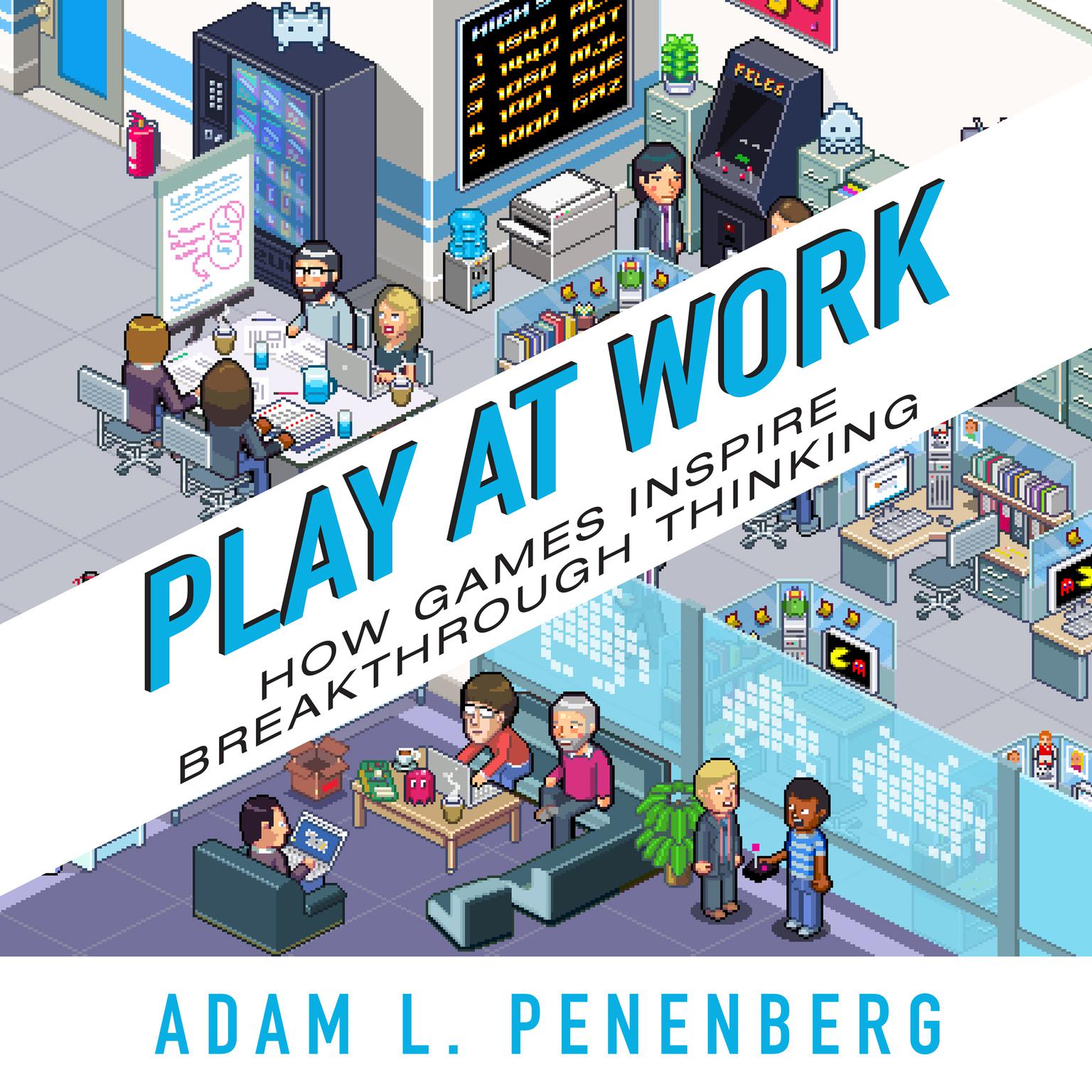 Play Audiobook Sample
Play Audiobook Sample
Play at Work: How Games Inspire Breakthrough Thinking Audiobook
 Play Audiobook Sample
Play Audiobook Sample
Quick Stats About this Audiobook
Total Audiobook Chapters:
Longest Chapter Length:
Shortest Chapter Length:
Average Chapter Length:
Audiobooks by this Author:
Publisher Description
Do games hold the secret to better productivity? If you’ve ever found yourself engrossed in Angry Birds, Call of Duty, or a plain old crossword puzzle when you should have been doing something more productive, you know how easily games hold our attention. Hardcore gamers have spent the equivalent of 5.93 million years playing World of Warcraft while the world collectively devotes about 5 million hours per day to Angry Birds. A colossal waste of time? Perhaps. But what if we could tap into all the energy, engagement, and brainpower that people are already expending and use it for more creative and valuable pursuits? Harnessing the power of games sounds like a New-Age fantasy, or at least a fad that’s only for hip start-ups run by millennials in Silicon Valley. But according to Adam L. Penenberg, the use of smart game design in the workplace and beyond is taking hold in every sector of the economy, and the companies that apply it are witnessing unprecedented results. “Gamification” isn’t just for consumers chasing reward points anymore. It’s transforming, well, just about everything. Penenberg explores how, by understanding the way successful games are designed, we can apply them to become more efficient, come up with new ideas, and achieve even the most daunting goals. He shows how game mechanics are being applied to make employees happier and more motivated, improve worker safety, create better products, and improve customer service. For example, Microsoft has transformed an essential but mind-numbing task—debugging software—into a game by having employees compete and collaborate to find more glitches in less time. Meanwhile, Local Motors, an independent automaker based in Arizona, crowdsources designs from car enthusiasts all over the world by having them compete for money and recognition within the community. As a result, the company was able to bring a cutting-edge vehicle to market in less time and at far less cost than the Big Three automakers. These are just two examples of companies that have tapped the characteristics that make games so addictive and satisfying. Penenberg also takes us inside organizations that have introduced play at work to train surgeons, aid in physical therapy, translate the Internet, solve vexing scientific riddles, and digitize books from the nineteenth century. Drawing on the latest brain science as well as his firsthand reporting from these cutting-edge companies, Penenberg offers a powerful solution for businesses and organizations of all stripes and sizes.
Download and start listening now!
“Adam Penenberg’s excellent new book persuasively demonstrates the power of gaming to motivate work. Filled with great stories of companies who have made the leap into playful productivity, it should be useful and inspirational for anyone looking at how to leverage the spirit of competition.”
— Douglas Rushkoff, author of Present Shock
Quotes
-
“This is a fascinating and entertaining exploration of that most basic of human proclivities: play.”
— Daniel H. Pink, New York Times bestselling author of Drive -
“Adam Penenberg provides an insightful guide into how gamification is infiltrating the marketplace and, more important, how it can be leveraged to make experiences more immersive and addictive. Read it, and prepare to see your everyday experiences through new eyes.”
— Todd Henry, author of Die Empty -
“In this great and often funny book Penenberg shows how everyone from entrepreneurs to scientists is using gamification to create the future today. Don’t be left behind. Read this book to learn how the rules of business and life are changing.”
— Gave Zichermann, CEO, Gamification Co.
Play at Work Listener Reviews
Be the first to write a review about this audiobook!
About Adam L. Penenberg
Adam L. Penenberg is the editor of PandoDaily, the site of record for Silicon Valley, and has written for the New York Times, Forbes, Fast Company, Slate, the Economist, the Washington Post, and Wired. He is the author of Viral Loop: From Facebook to Twitter, How Today’s Smartest Businesses Grow Themselves and a journalism professor at New York University.
About Timothy Andrés Pabon
Timothy Andrés Pabon is an English- and Spanish-speaking voice-over artist who has worked extensively in advertising and audiobook narration. He has had acting roles on House of Cards and has also been a costar on HBO’s acclaimed series The Wire opposite country music legend Steve Earl. As a stage actor, he has worked off-Broadway at the June Havoc Theatre, and his regional credits include Center Stage, the Shakespeare Theatre, Arena Stage, the Hippodrome, Olney Theatre, Rep Stage, and GALA Hispanic Theatre.




